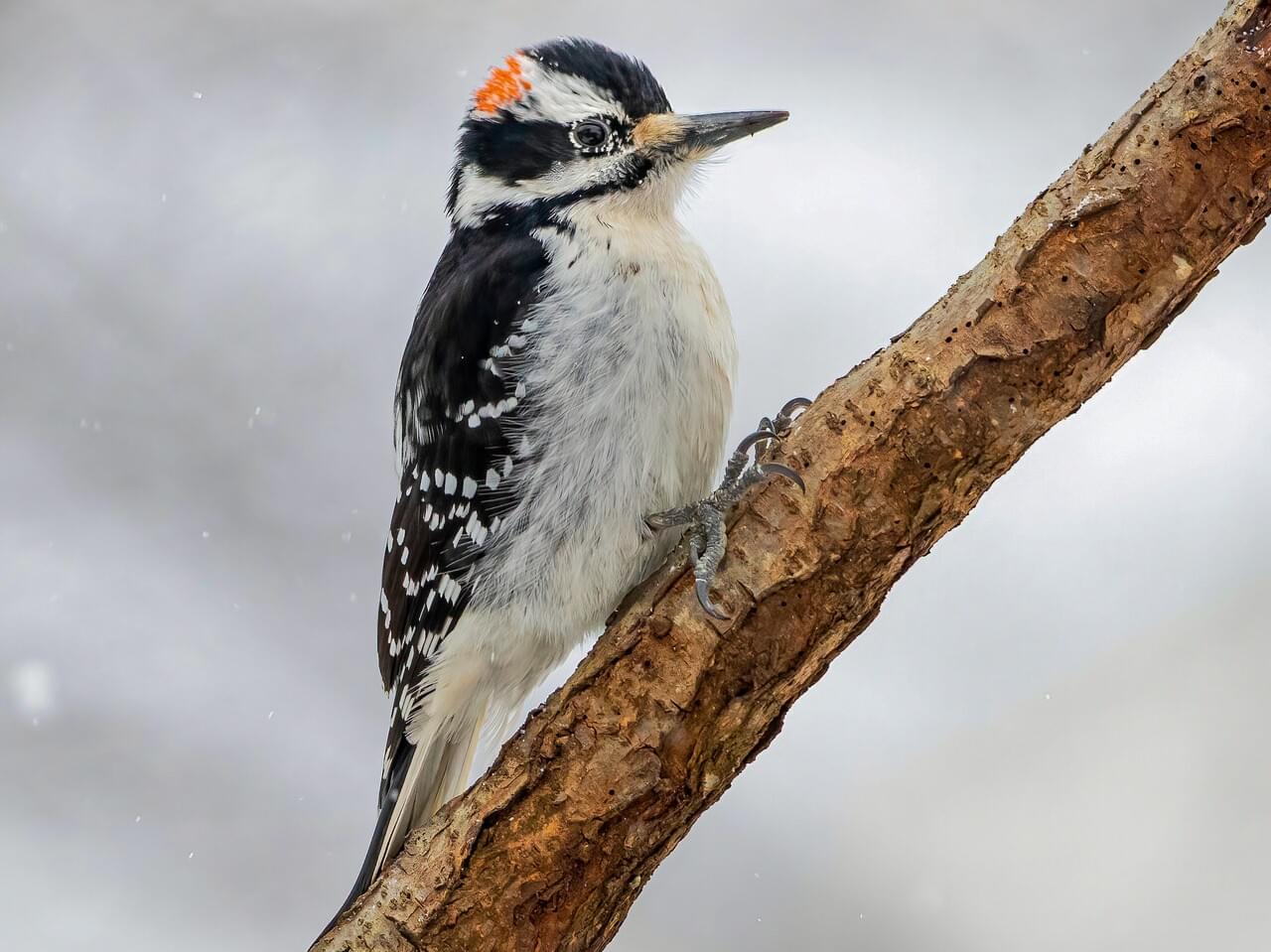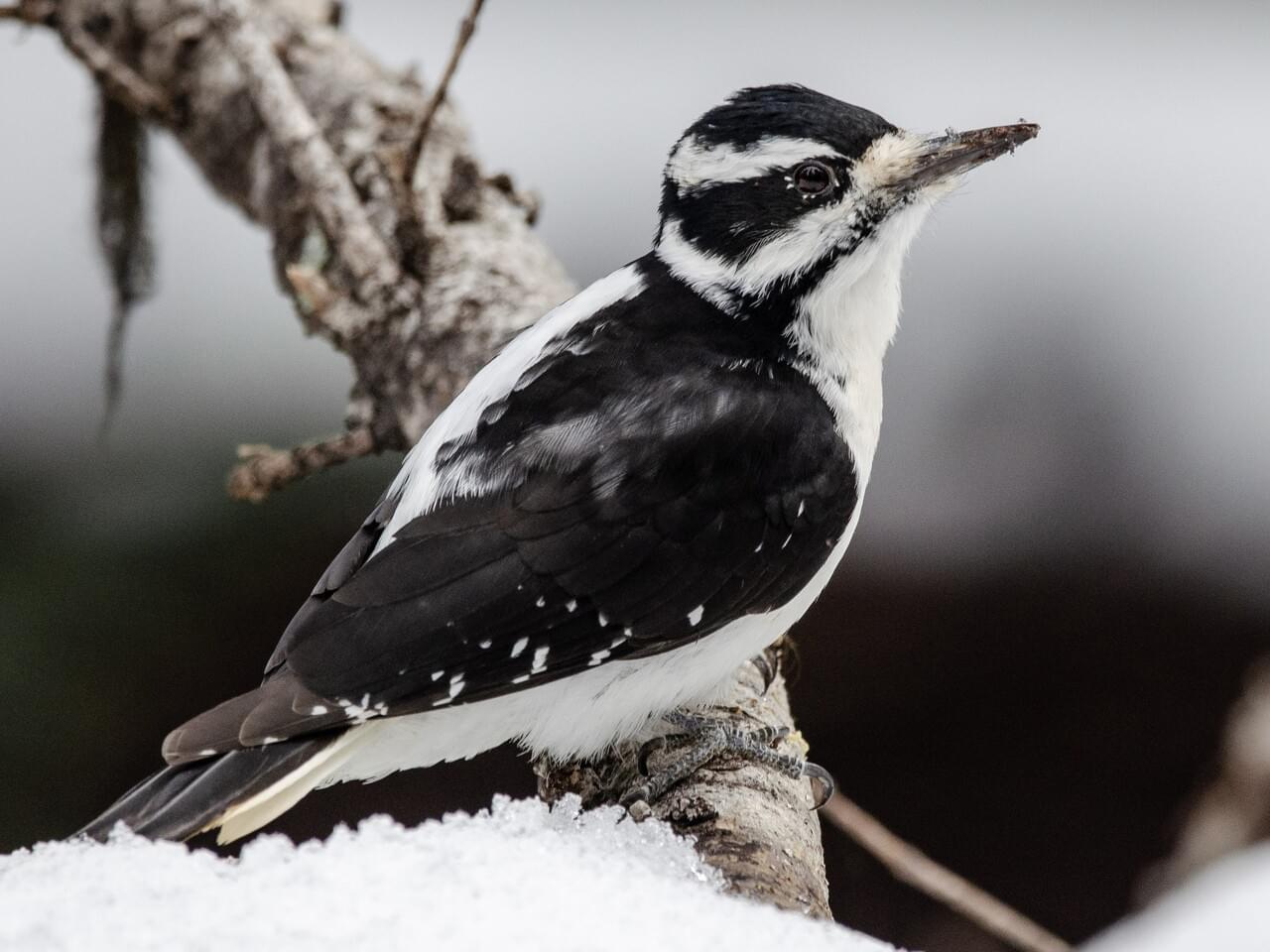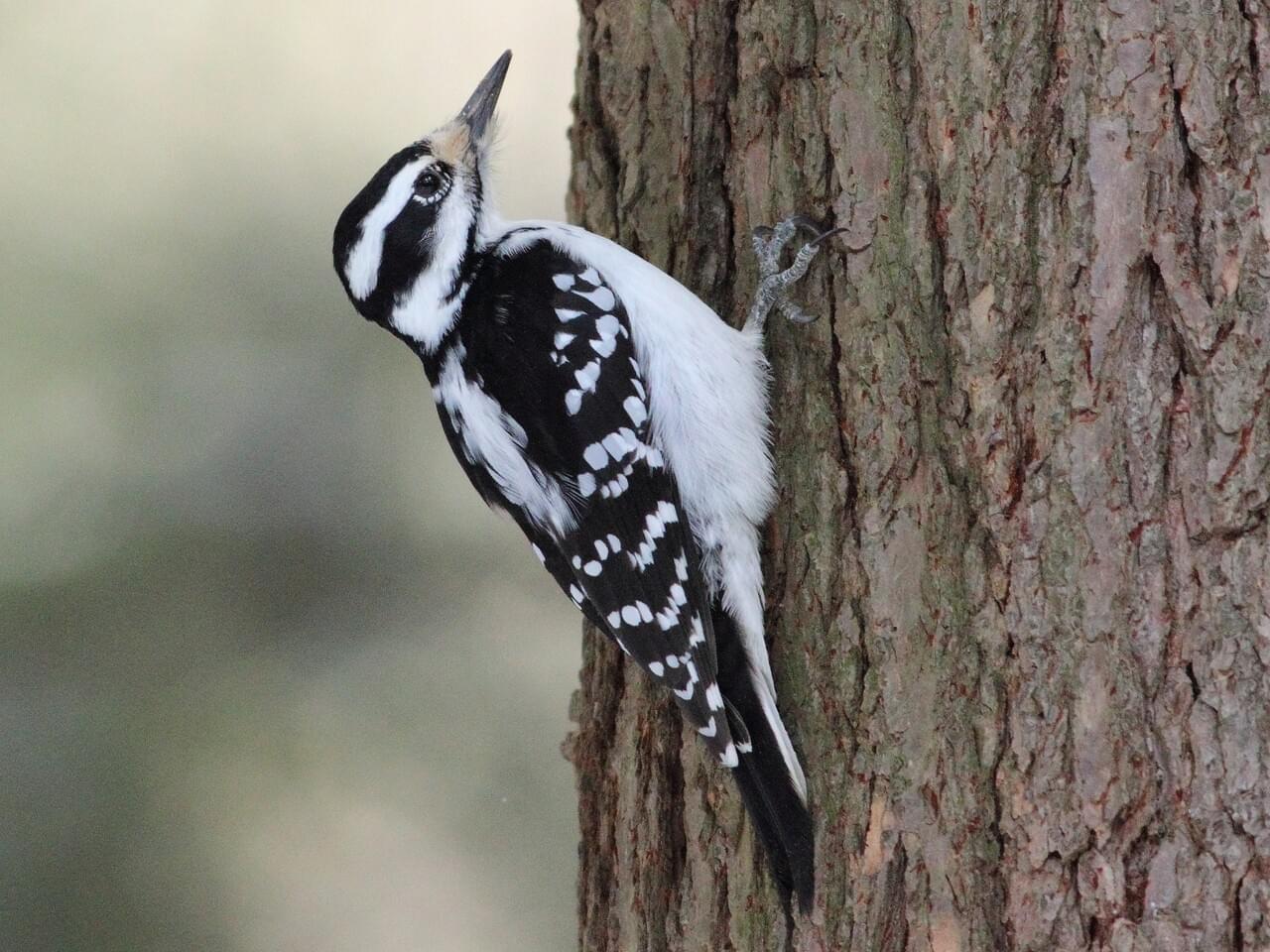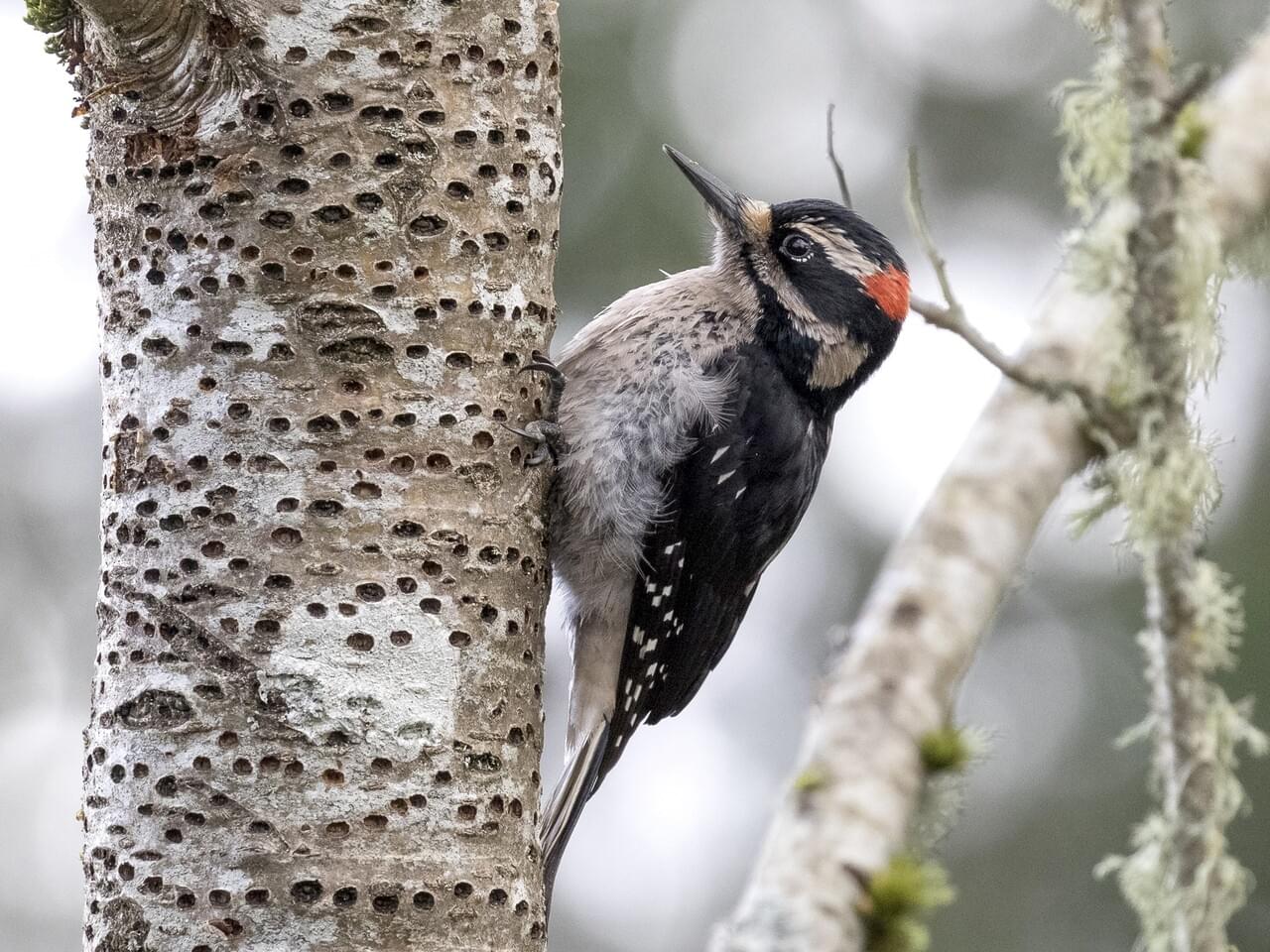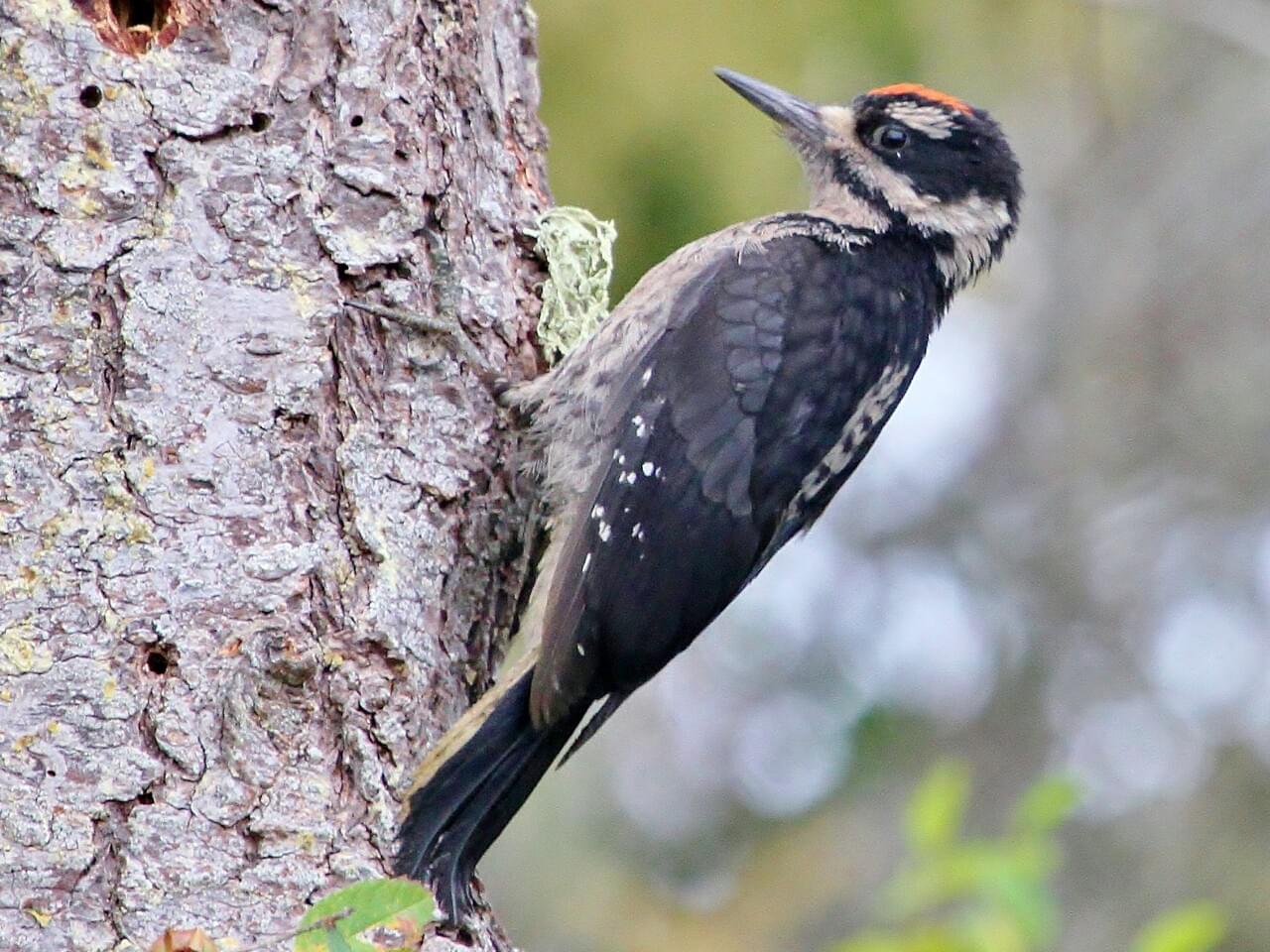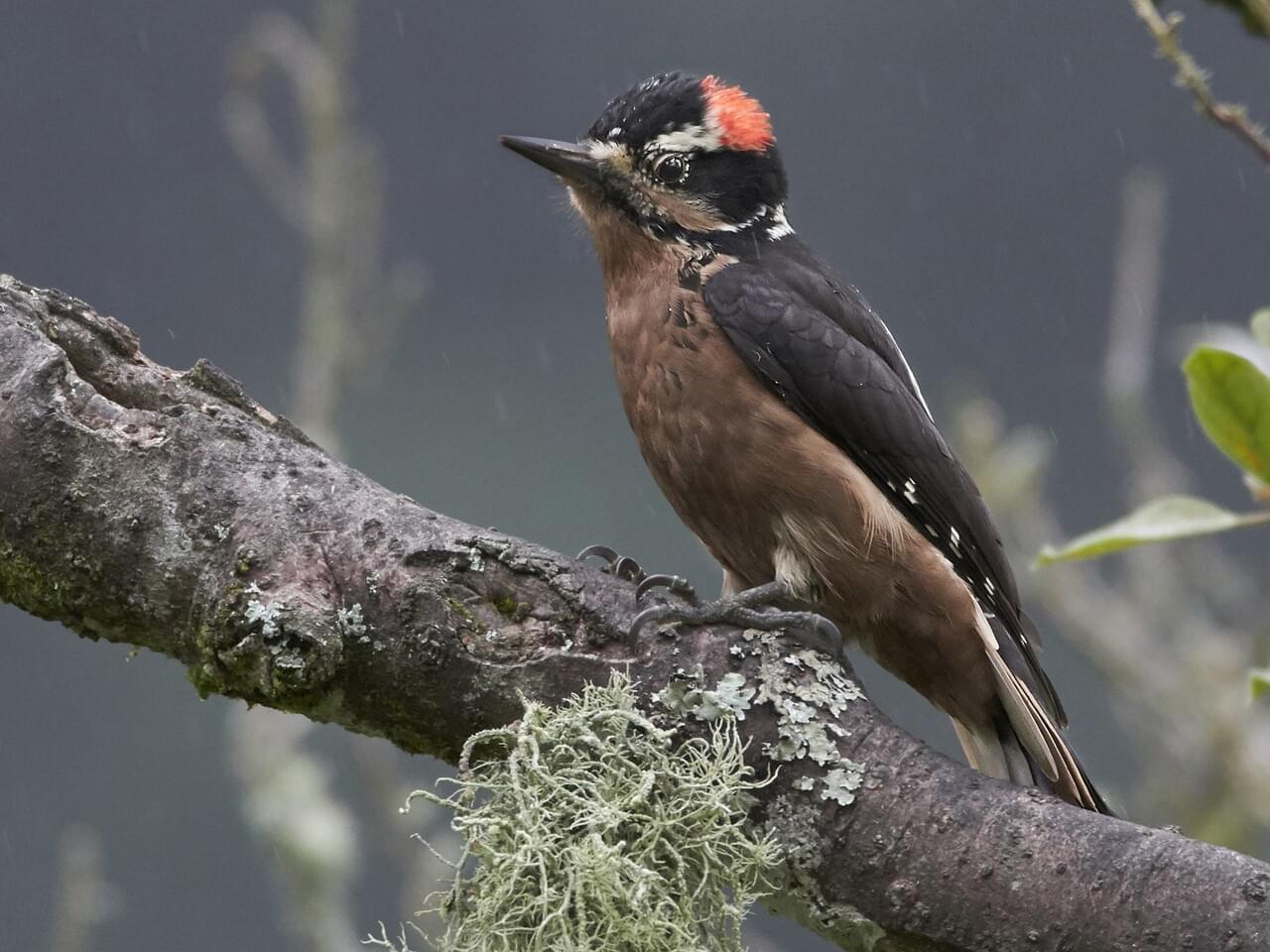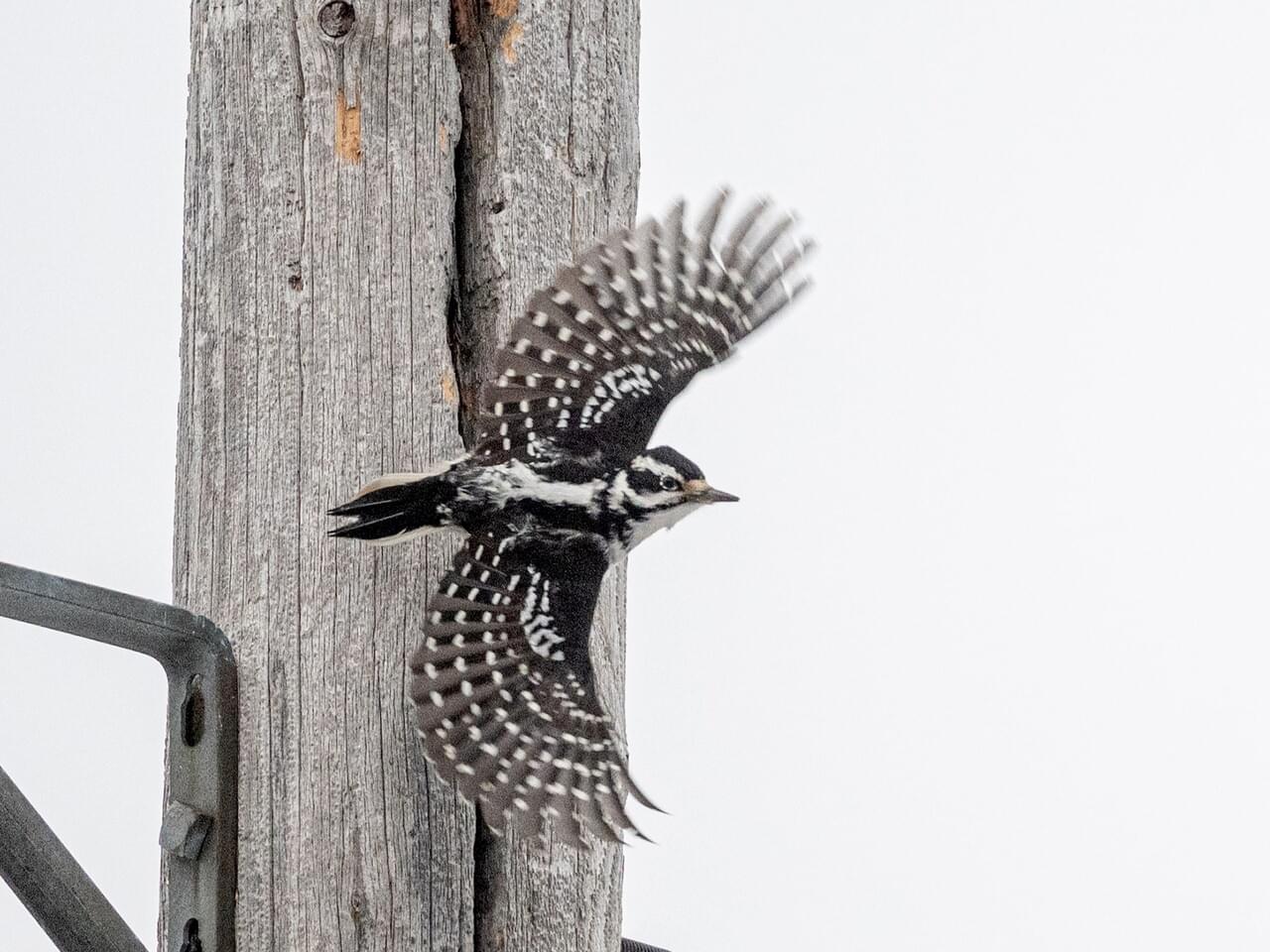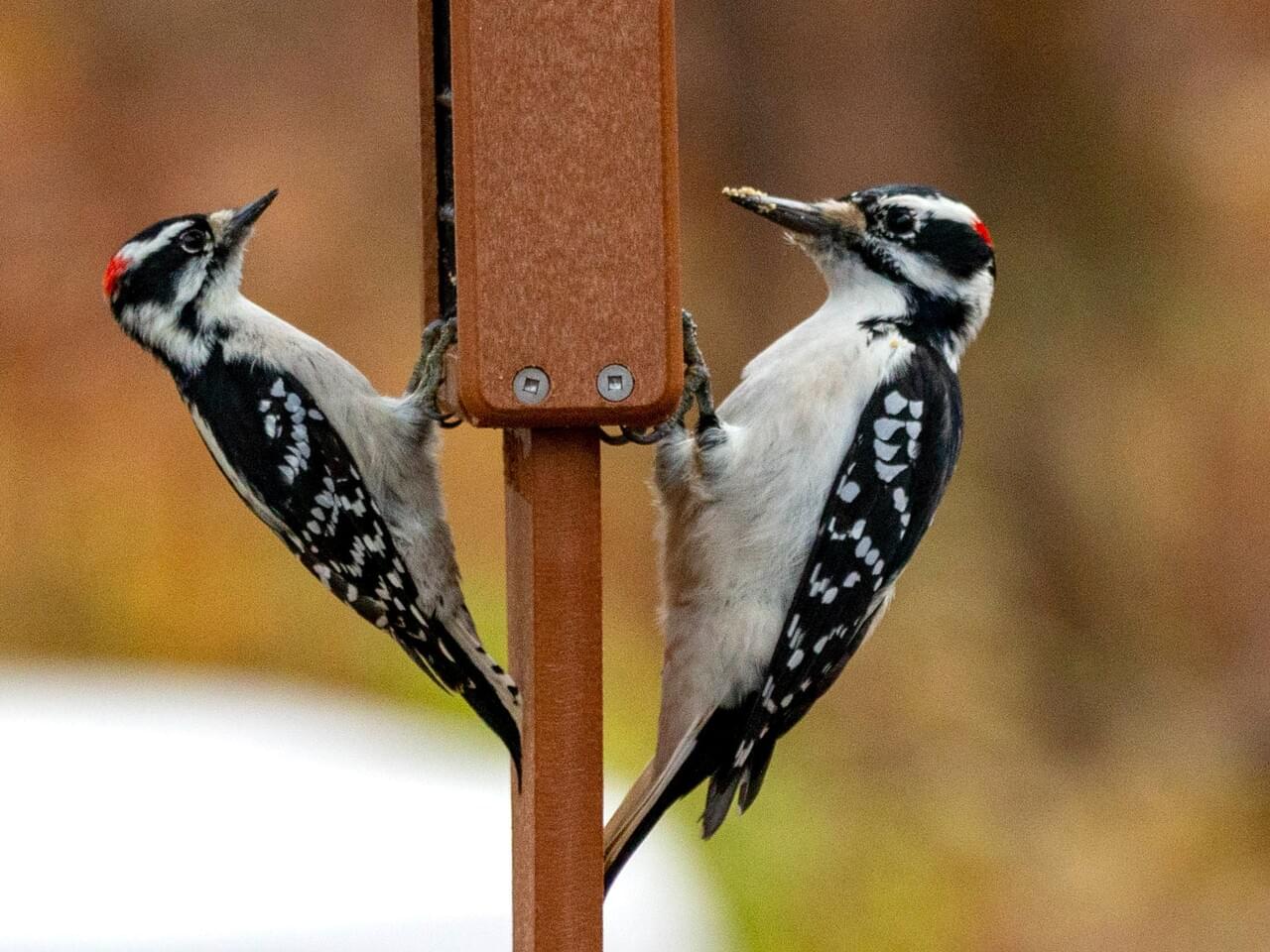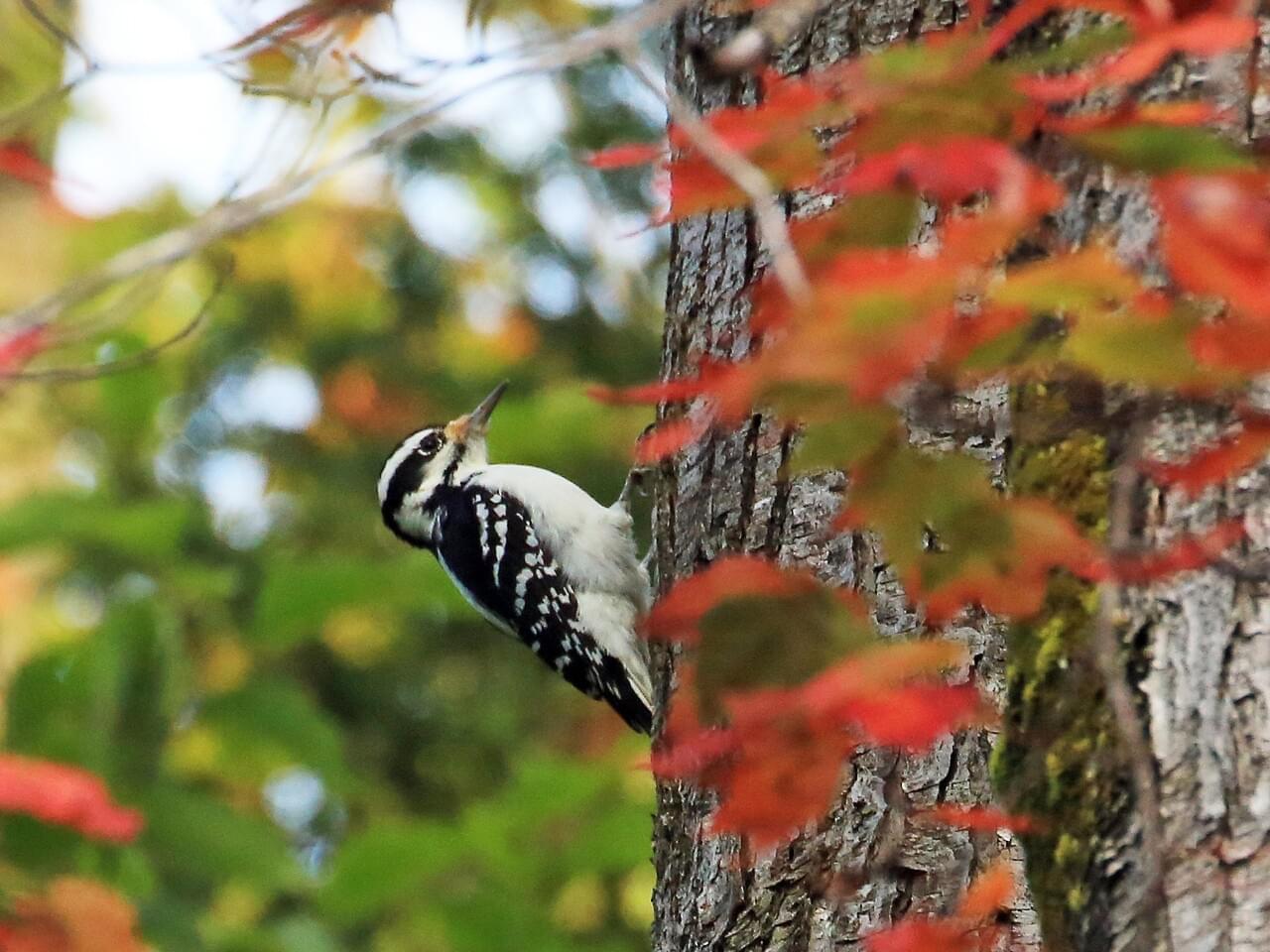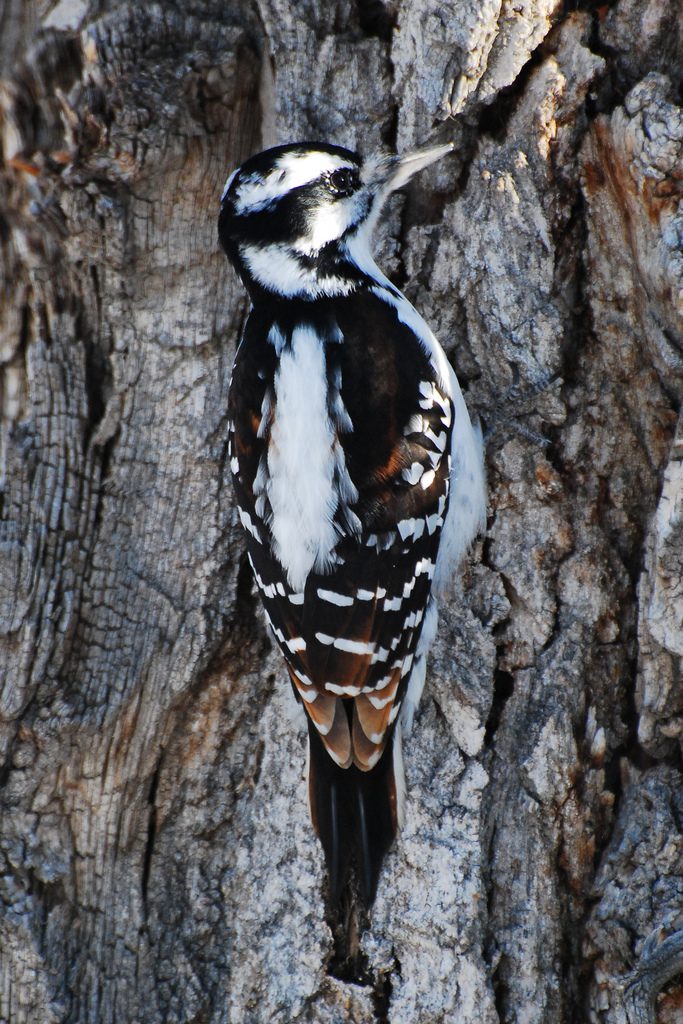 Photo ©
Ron Kube
Photo ©
Ron Kube
Hairy Woodpecker
Regional Species
The larger of two look alikes, the Hairy Woodpecker is a small but powerful bird that forages along trunks and main branches of large trees. It wields a much longer bill than the Downy Woodpecker's almost thornlike bill. Hairy Woodpeckers have a somewhat soldierly look, with their erect, straight-backed posture on tree trunks and their cleanly striped heads. Look for them at backyard suet or sunflower feeders, and listen for them whinnying from woodlots, parks, and forests.
Range
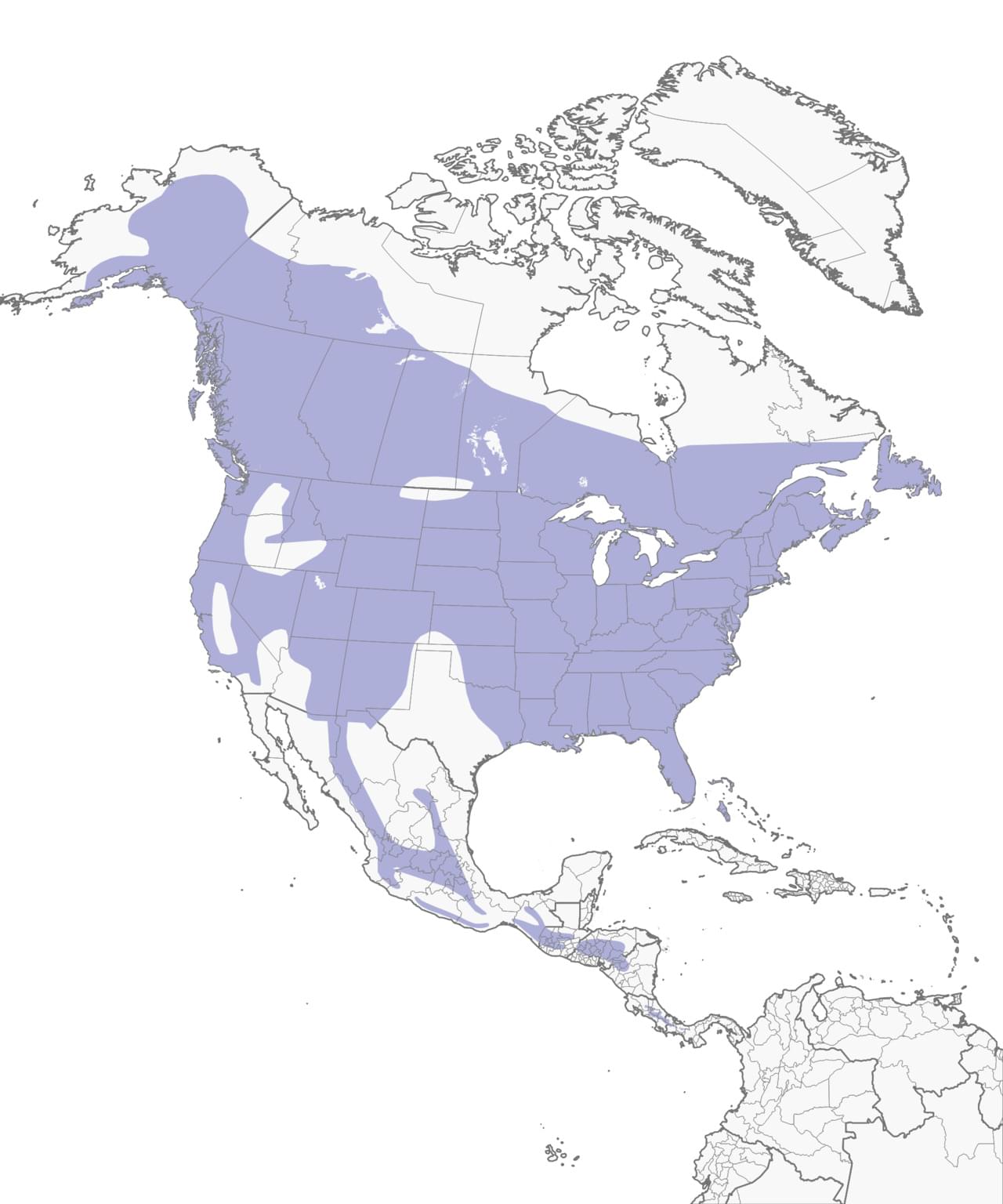
Habitat
Hairy Woodpeckers are common in mature woodlands with medium to large trees. They also occur in woodlots, suburbs, parks, and cemeteries. You can find them equally commonly in coniferous forests, deciduous forests, or mixtures, and generally up to about 6,500 feet elevation. Also found at forest edges, around beaver ponds, in recently burned forests, southern swamps, open pine, oak, or birch woodlands, and orchards.
Food
More than 75% of the Hairy Woodpecker’s diet is made up of insects, particularly the larvae of wood-boring beetles and bark beetles, ants, and moth pupae in their cocoons. To a lesser extent they also eat bees, wasps, caterpillars, spiders, millipedes, and rarely cockroaches, crickets, and grasshoppers. Bark beetles sometimes cause extensive infestations in thousands of live trees, their populations reaching into the billions. When this happens, Hairy Woodpeckers often appear in large numbers to eat the larvae. A similar pattern happens in forests that have recently burned: wood-boring beetles become very numerous. Hairy and other woodpecker species can become very common in these areas and achieve high nesting success. Hairy Woodpeckers have helped control pest outbreaks such as codling moths in orchards. Elsewhere, a little more than 20% of Hairy Woodpecker diet is made up of fruit and seeds. Hairy Woodpeckers are common visitors at feeders, eating suet and sunflower seeds.
Behavior
Hairy Woodpeckers typically hitch up tree trunks or along large branches, leaning back against their stiff tail feathers and springing upward with both feet at once. Unlike Downy Woodpeckers, Hairy Woodpeckers never feed on weed stalks, cattails, or reeds. They sometimes forage at the bases of trees, particularly on ponderosa pines, which are often attacked just above ground level by a species of bark beetle. During conflicts, Hairy Woodpeckers raise both wings over their back at a 45-degree angle, crane back their head and make shrill cries; they sometimes even do this in flight. Courting birds stretch out their necks, point their bills high, and bob their heads from side to side, flicking their wings as they circle a tree trunk. They also sometimes chase each other in fast, looping flights through the trees.
Nesting
The entrance to the nest is about 2 inches tall and 1.5 inches wide, leading to a cavity 8-12 inches deep. The inside widens at the bottom to make room for the eggs and the incubating bird. It’s typically bare except for a bed of wood chips at the bottom for the eggs and chicks to rest on.
Appearance
Typical Sound

© Jay McGowan / Macaulay Library
Size & Shape
A medium-sized woodpecker with a fairly square head, a long, straight, chisel-like bill, and stiff, long tail feathers to lean against on tree trunks. The bill is nearly the same length as the head.
Color Pattern
Hairy Woodpeckers are contrastingly black and white. The black wings are checkered with white; the head has two white stripes (and, in males, a flash of red toward the back of the head). A large white patch runs down the center of the black back.
Plumage Photos
Similar Species
Hairy Woodpeckers have a much larger bill than Downy Woodpeckers, nearly the same length as the bird's head. Hairy Woodpeckers also have a longer and more distinct black mark on the shoulder, and in most populations, completely white outer tail feathers. The Hairy Woodpecker's whinny call does not drop in pitch at the end the way a Downy Woodpecker's does. Ladder-backed and Nuttall's woodpeckers have narrow horizontal bars on the back and spotted or streaked underparts. American Three-toed Woodpeckers have finely barred flanks, much less white on the face, and the males have yellow crowns.
Did you know?!
- Hairy Woodpeckers sometimes drink sap leaking from wells in the bark made by sapsuckers. They’ve also been seen pecking into sugar cane to drink the sugary juice.
- The oldest recorded Hairy Woodpecker was a male, and at least 15 years, 11 months old when he was recaptured and rereleased during banding operations in New York in 2010.
